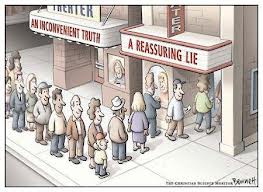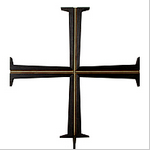In this installment of our continuing series, we hear from Roman Globokar, Ph.D., of the University of Ljubljana in Slovenia.
The Role of the Catholic Moral Theologian in Church and Society
In this contribution I will describe my personal experience of being a moral theologian in the young and small Central European country of Slovenia. In the early nineties there was a process of democratic changes and separation from communist Yugoslavia. During the communist time, the Church was excluded from public life, but it enjoyed a good reputation among the inhabitants. The vast majority of citizens experienced the Catholic Church as a moral authority and opposition to the communist regime. It also played an important active role in the process of gaining independence and democratization.
Slovenia is a traditionally Catholic country, and still about 70% of the population declare themselves as Catholics; the rest are mostly atheists, the number of members of other religions is relatively small. However, the institutional Church has lost much reputation and influence in the last twenty years. On the one hand, it is true that most of the public media have a negative attitude towards the Church and the mentality of the previous system, where religion was treated as a negative phenomenon, continues. On the other hand, the Church also lost a lot of its opportunities because in the transition period it was too concerned with material goods recovered to it in the process of denationalization, but did not pay enough attention to concrete pastoral and social challenges. In addition to pedophile scandals, which undermined the confidence of believers also in the universal Church, the experience of economic debacle of the archdiocese of Maribor is extremely tragic for our country. It went bankrupt due to financial speculations and that squandered the wealth and confidence of many believers. The excessive lust for profits that guided the economic governance of the archdiocese of Maribor, casts a bad light on all representatives of the Church acting in public. Many of them are discredited in advance, because in the eyes of many people you cannot talk about ethics if gluttony was at the base of your actions.
To understand the social context of our country it is necessary to mention the fact that our legislation insists on a strict separation of Church and state. Unlike the vast majority of European countries, religious education in public schools in Slovenia is prohibited. The total exclusion of religion from school promotes and strengthens the process of radical secularism that wants to exclude the Church from the area of public activity.
A moral theologian in his/her thinking and acting is aware of both the Church and the social context. Theological ethics in itself is a dialogical discipline that always searches for contact with concrete social reality. It is important that a moral theologian has a basically favorable attitude towards his/her environment. Even the process of secularization, which in many ways determines the social climate in Slovenia and Europe, represents primarily a challenge and an opportunity for moral theology to enrich its statements and encourages it for the argumentative presentation of its views in the public sphere. A moral theologian in Slovenia as well as in most European countries can no longer assume the Christian foundations of the majority of the population. Nothing is taken for granted, but it is necessary to justify any position. Personally, I see one of the biggest challenges for moral theology in how to communicate its own views on various ethical issues to the public. The question is how to present the moral teaching to modern men and women in a way that he/she could understand it and accept it as a liberating path for his/her life. So, how to communicate message of salvation within a concrete situation? Christian ethics is in service of redemption, it wants to help individuals and communities to find a way that leads to fullness of life.
Theological discourse is strange to modern humans. Furthermore, any model of heteronomous morality where the individual is subordinated to mere obedience to authority is rejected. Even believers expect from a moral theologian an arguable position that is credible and persuasive, based on facts and promotes full realization of life. Just the argument that that is a position of the Magisterium of the Church is for most of our contemporaries no longer enough. Any moral requirement within moral theology must also be backed up by arguments of reason.
As a moral theologian, I occasionally feel uncomfortable: within the secular society I am under suspicion because as a representative of the Church I am in advance marked as someone that wants to impose an authoritative and dogmatic moral teaching; I am also under suspicion within a certain circle in the Church community because I don’t merely explain the teaching of the Magisterium of the Church, but I am also reasoning on specific issues and trying in a dialogical way to find convincing rational arguments in confrontation with other positions. I am convinced that religious and rational views do not contradict each other. The rational reflection on ethical issues does not endanger the religious view on humanity. Gratia supponit naturam. Therefore, as a moral theologian in order to understand the human life and its acting more deeply, I appreciate knowledge from various human sciences. Nothing genuinely human can be foreign to a moral theologian. Of course, he/she does not stop at the scientific knowledge about man and his acting, but on the basis of theological methodology he/she assesses what is good for man as an individual, for the humanity and for the whole creation.
A large part of my professional interest is dedicated to questions of the methodology of moral theology. What are the bases for moral judgments of the Christians? What is the role of faith in the field of morality? Is moral theology or theological ethics indeed a theological discipline? How can theology nowadays be included in a global ethical discourse? Is it necessary to mention God in arguing the moral issues? Should a theologian clearly show the theological assumptions of his/her reasoning (e.g. that human dignity is grounded upon faith in God the Creator who made man in his own image), or should he/she operate in a more pragmatic way and not reveal the theological arguing in order to be more acceptable in the public discourse? What language (terminology) should a moral theologian use to communicate the Christian ethical teaching?
For me, moral theology is as a bridge between the rich moral tradition of the Church and the contemporary secular society. It seems very important to me that a moral theologian does not try to put himself/herself out of the society and from outside condemn the contemporary society as morally decadent. The world we live in is the world in which God calls us to proclaim the Good News to people. God loves this world and he wants his love to be palpable for our contemporaries through us. We too are part of our modern society, so our assessment is always conditioned by our concrete historical and cultural contexts. That, however, does not mean that God’s revelation does not provide any criteria for the critical appraisal of our social and ecclesiastical community.
An important feature of a moral theologian is that he wants to learn about different areas he/she is invited to participate in. I personally take part in the National bioethical committee. I am not an expert on specific medical questions, so I ask colleagues to explain particular examples to me. My task is to formulate the right questions to help all participants in the search for an ethical solution. The rich tradition of moral theology allows me to illuminate specific areas with some basic questions. Sometimes I have a chance to provoke discussion about a certain dilemma by pointing at the implicit anthropology present in different options. Each moral judgment is grounded upon certain anthropology. The task of moral theology within a pluralistic society, among others, is to demonstrate that each moral statement is formed within a particular historical, anthropological and metaphysical horizon, and that no one can say he/she himself/herself defends the “neutral” position. Each position derives from certain predispositions.
By the predispositions the Christian ethical teaching is based on, a moral theologian is committed to promote dignity of every human person and to prevent any discrimination. Irrespective of nationality, sex, state of health, or material condition everybody has equal dignity. Efforts should be made to give voice particularly to “the weak” or “the poor” in the society, to those who have no voice or whose voice is not heard. There are many chances to comment in the media or through the internet to draw attention to injustices in the society and to various sorts of violation of human dignity. It seems to me that the Church in Europe is still too nationally oriented: when it comes to violations of migrants’ rights not the same criteria are applied as in the case of violation of the dignity of the locals. The remark is unfortunately true also for Slovenia. I think we should respond to specific social problems more strongly, especially when it comes to an evident violation of human rights.
Roman Glokokar is Assistant Professor of Theological Ethics at the Theological Faculty, University of Ljubljana. He studied at Gregorian University in Rome and received his doctorate in 2001. Currently he teaches Introduction to Theological Ethics, Religous Ethics, Fundamental Theological Ethics and Bioethics. Since 2006 he has been running the biggest Catholic educational institution in Slovenia, St. Stanislav’s Institution. He is a member of the National Bioethics Committee. His main professional interest lies in the methodology of theological ethics, dialogue within the pluralistic society, role of natural law and in the field of bioethics. He works abundantly on the theoretical and practical aspect of ethical issues in education at all levels. E-mail: roman.globokar@guest.arnes.si






Roman: Thanks so much for your post here. I learned a lot and it was great to read about the challenges you face as a moral theologian in Slovenia. What struck me most was your call for a moral theologian to be a bridge between the moral tradition of the Church and contemporary secular society. I think that the for much of the last decades the Church has defaulted to a very critical assessment of secular society (e.g., the “culture of death” and so forth). And I think it’s past due time for the Church to engage secular culture on its own terms and not, as you say, “condemn the contemporary society as morally decadent.” Best wishes for your work.
David DeCosse, Santa Clara University, Santa Clara, Calif., USA